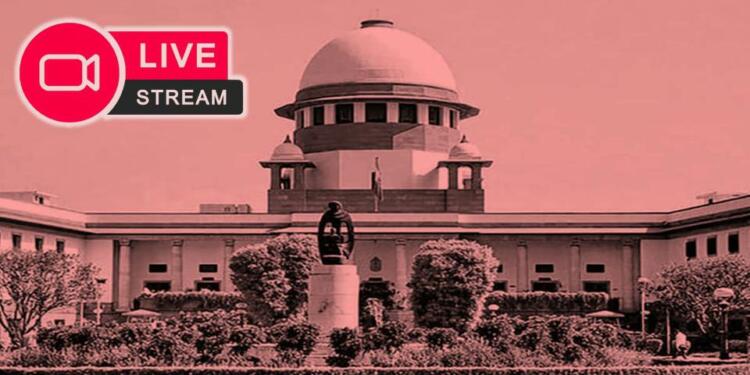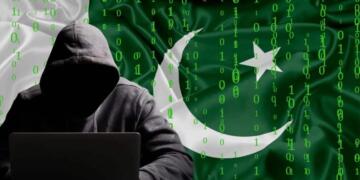Even after 75 years of Independence, several key institutions are still dragging the colonial legacy. They have not undertaken the necessary reforms to keep up with the changing time and technology. These institutions kept following rules and procedures that were set during the colonial times and were a major hurdle in transparency and accountability.
Furthermore, it is a well-established fact that lack of transparency and accountability results in distrust and a deep sense of insecurity. However, the new announcement by the apex court is a welcoming step to ensure greater transparency that will build greater trust among the citizens.
Supreme Court hearings will be live streamed
The Modi government has been relentlessly arguing in favour of increasing transparency across all the organs of the constitution. Now, it seems that the Judiciary does not want to lag behind the Executive and Legislature.
Evidently, the Supreme Court has taken a landmark decision towards greater transparency. The apex Court has unanimously decided to start live streaming of Constitutional Bench hearings from 27th of September.
In the initial phase, the apex court will telecast the live proceedings on video-sharing platform, YouTube. Later, it will get its own platform for hosting the live telecast of the court proceedings.
The decision was taken at a meeting convened by Chief Justice of India, U U Lalit, which was attended by all the judges of the apex court.
Also Read: An incident with CJI’s father proves that only face value matters in Supreme Court
Full Court of Supreme Court decides to begin live streaming of Constitution Bench hearings from September 27
report by @DebayonRoy
Read story: https://t.co/MyEUWdWi5P pic.twitter.com/hm1sn0vq8M
— Bar and Bench (@barandbench) September 21, 2022
Earlier, the Supreme Court had live telecasted the proceedings of the retirement of the then CJI N V Ramana. The farewell proceedings were streamed live on NIC’s webcast portal.
Also Read: CJI Lalit’s big plans for his short tenure
The live streaming of the court proceedings would dispel the needless fear from the legal system among the general masses. Witnessing the live proceedings and functioning of the legal system will help people understand the law of the land better. This great step in the direction of transparency has been lauded by all the stakeholders involved, including lawyers and common citizens.
Earlier, a similar step was taken by the Gujarat High Court. In October 2020, the Gujarat High Court became the first court in India to start live streaming for public.
Read More: Big: Gujarat High Court becomes the first court to live stream proceedings on YouTube
Currently, several key constitutional matters listed before the apex court include the constitutional validity of the reservation for the Economically Weaker Section (EWS), adequacy of Bhopal Gas tragedy compensation, validity of All India Bar Examination and the extent of Supreme Court’s powers to directly hear cases.
Moreover, with live streaming court proceedings new bottlenecks and issues in the legal system will come to light. People will be more aware of the stand that different party take in the courts, it will also to help call out the hypocrisy in their stand, if any, in the public stance. Some bizarre instances of proceedings will can be highlighted as well.
https://twitter.com/Mithile57096855/status/1571028110619086849
These CCTVs are bringing out the true avatar of our Honourable Courts… https://t.co/EgIapaBjDb
— Rocks (@naikrakesh) July 2, 2022
Reform for faster listing of fresh cases
Additionally, the apex court meeting also decided to revamp its new system of listing cases for hearing. As per the Indian Express, fresh matters that are unheard on Tuesday afternoon would be carried over for hearing on Wednesday and Thursday afternoon.
Contrary to this, the court earlier used to hear fresh matters within a span of two hours post-lunch on Tuesday, Wednesday and Thursdays.
Also Read: A lower court judge was suspended by the High Court, for giving “instant justice”
This new listing system will help reduce the rising backlog of cases and will ensure faster listing of fresh matters. It is important to note that the Economic Survey had highlighted lacuna in the legal system. In one chapter, it argued that the country is following the law of the jungle or Matsyanyaya (where big fish eat small fish).
So, greater transparency will lead to greater accountability. Acknowledgment of problems and challenges is the prime requirement for getting the lacuna resolved. With reformist steps like these, the apex court has demonstrated its eagerness to incorporate technology for undertaking drastic progress that will help unclog the legal system with pendency of cases.
Support TFI:
Support us to strengthen the ‘Right’ ideology of cultural nationalism by purchasing the best quality garments from TFI-STORE.COM
Also Watch:



























